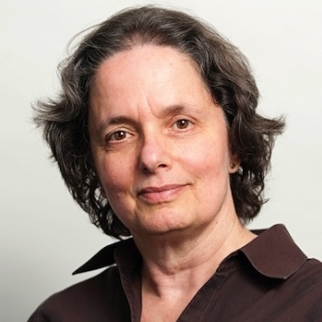“Live your values, embrace your traditions, but open yourselves up and never stop trying to heal the wounds of the world,” former Secretary of State Hillary Rodham Clinton implored an audience of 4,000 at Gibson Amphitheatre in Universal City on June 24. Without revealing any future political ambitions, she spoke of Israel, Iran, Afghanistan and China, of her experiences as a world leader’s wife, a politician herself and as the United States’ leading advocate on the international stage. And she repeatedly asked the crowd to support talks with enemies and opponents, whether domestic or international.
“The fact is, diplomacy would be very easy if we only talked to our friends,” she said.
To say that Clinton, now a private citizen, spoke to a welcoming crowd would be an understatement. She arrived onstage an hour late to a restive audience that immediately turned effusive as she talked for 90 minutes — about an hour of it in an address, the last third in conversation with Rabbi Robert Wexler, president of American Jewish University, the program’s presenter.
Israel and the Middle East dominated Clinton’s speech, which ranged from memoir to foreign-policy analyst, and without answering the question on everyone’s mind as her ambitions for the 2016 presidential race, Clinton gave every indication that she intends to stay in the game for now as an eloquent stateswoman advocating for peace negotiations on multiple world fronts, as well as for women’s rights.
Espousing “unwavering support for Israel” as a “bedrock principle” of the United States, she referred to support for the Jewish state as “a commitment rooted in our deepest values,” adding that the United States continues to “stand with Israel and its right to defend itself.” She spoke twice of her appreciation of Israeli Prime Minister Benjamin Netanyahu’s attempt at a settlement freeze in 2009-2010, and called it “remarkable.” “I give Prime Minister Netanyahu credit for agreeing to a 10-month settlement freeze,” she said. “If the Palestinians had been willing to engage in serious negotiations, who knows where it would have led.”
On the Arab Spring of 2011, and the wave of revolt that has followed, she acknowledged some foresight: “Many of us knew that there would be a day of reckoning, in Egypt in particular,” she said, recalling that both she and Condoleezza Rice, Clinton’s predecessor as secretary of state in the George W. Bush administration, had voiced concern over Egyptian leader Hosni Mubarak’s repressive regime, but were told by Mubarak to “stay out of our internal affairs.”
Nevertheless, she said, “I don’t think I or anybody predicted the exact sequence” of the Arab revolutions that have ensued. On President Barack Obama’s actions with regards to Syria, she said little, except to express hope for the effort to “get friends and allies in the region all on the same page.”
Asked by Wexler about the Sept. 11, 2012 attack on the American compound in Benghazi, Libya, and the murder of U.S. Ambassador J. Christopher Stevens and three others, a tragedy that plagued her and President Obama in the last days of his first administration, she spoke at some length. “This was an expeditionary post,” she said, “not an embassy, not a consult,” a place to “establish a presence” for the United States. “Chris Stevens believed it was important to be in Libya,” she said, but the post was reliant upon a Libyan militia, in large part, for protection, along with “a large CIA contingent with professional security.”
Stevens, she said, “knew better than anyone that there had been some attacks, but he believed it was important to be there.” Yet on the day of the attack, she said she “called the president of Libya and he had nobody to send” to rescue the Americans. “The militia did not stay and defend our compound.” It was, she added, a day of demonstrations taking place across the Arab world, from “North Africa to Indonesia.” And after the death of Stevens, she said, “it was surprising to see some people politicize the events.”
Perhaps her most moving moments of the evening came as she spoke of how, in 1985, as the wife of then-Arkansas Gov. Bill Clinton while on a trip to Miami, she came across a newspaper report about Avima D. Lombard, a professor at Hebrew University in Jerusalem, who, Clinton said, was doing groundbreaking work “helping to teach parents to become their child’s first teachers.”
She reached out to Lombard, and invited her to come to Little Rock, on a trip sponsored by the National Council of Jewish Women, to help bring the program known as HIPPY to the United States. A decade later, as first lady, Clinton made an official visit to the HIPPY program in Israel, meeting both Jewish and Arab mothers who where “united by a deep commitment to help their children lead happy and healthy lives.”
Clinton’s advocacy for the rights of women and girls, and for children, she said, is part of the job she sees for herself today, “working with my husband at the Clinton Foundation.” We have, she said, “a solid commitment to do all that we can.”
In an introduction before Clinton’s remarks, Peter Lowy, co-chief executive officer and executive director of the Westfield Group, which sponsored the event, and who also serves as chairman of the board of the Jewish Journal, spoke of Clinton as a “transformative figure in American history,” saying, “I, for one, hope Hillary Clinton is not done yet.” What Clinton’s role will be moving forward was no clearer by the end of the evening, but judging from the long and loud standing ovation she received, the stage remains hers for the taking.





















 More news and opinions than at a Shabbat dinner, right in your inbox.
More news and opinions than at a Shabbat dinner, right in your inbox.